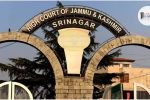High Court Acquits Accused -Violation of Natural Justice: Failure to Record Incriminating Material in Statement U/S 313 Cr.P.C

In a significant ruling, the High Court of Judicature at Allahabad acquitted the accused in a criminal case, emphasizing the violation of natural justice due to the failure to record incriminating material in the accused’s statement U/s 313 Cr.P.C.. The judgment, delivered on May 31, 2023, highlighted the importance of safeguarding the rights of the accused and ensuring a fair chance of defence.
The court observed, “If circumstances are not put to the accused in their statement under Section 313 of Cr.P.C., they must be completely excluded from consideration because the accused did not have any chance to explain them.” It relied on the judgments in Sharad Birdhichand Sarda Vs. State of Maharashtra and Sujit Biswas Vs. State of Assam, which emphasized the accused’s right to be given an opportunity to defend themselves.
The court further noted that the purpose of examining the accused under Section 313 of Cr.P.C. is to meet the requirements of natural justice, specifically the principle of audi alteram partem. It held that circumstances not put to the accused during their examination must be excluded, and their statement should not be considered in the absence of a fair chance to explain incriminating material.
Highlighting the significance of recording statements under Section 313 of Cr.P.C., the court referred to the amendment allowing the court to seek assistance from the prosecution and defense in preparing relevant questions. It criticized the failure to record vital points and the omission to put the contents of the written dying declaration to the accused during their statement.
The court expressed concern over the doubts raised regarding the voluntary nature and mental fitness of the deceased, casting doubt on the reliability of the dying declaration. It held, “The evidence on the point of dying declaration does not inspire confidence and cannot be relied upon.”
Citing the omission to put questions regarding the vital circumstance of the accused allegedly pouring kerosene on the deceased, the court concluded that the accused was prejudiced by the failure to seek their explanation. Consequently, the judgment and order of conviction passed by the trial court were quashed, and the accused was acquitted of the offense punishable under Section 302 of IPC.
Date of Decision: May 31, 2023
Rameshwar Lal Chauhan VS State of U.P.






